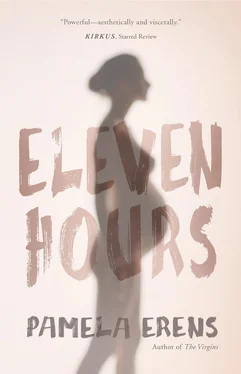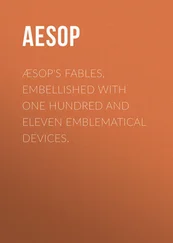Pamela Erens - Eleven Hours
Здесь есть возможность читать онлайн «Pamela Erens - Eleven Hours» весь текст электронной книги совершенно бесплатно (целиком полную версию без сокращений). В некоторых случаях можно слушать аудио, скачать через торрент в формате fb2 и присутствует краткое содержание. Год выпуска: 2016, Издательство: Tin House, Жанр: Современная проза, на английском языке. Описание произведения, (предисловие) а так же отзывы посетителей доступны на портале библиотеки ЛибКат.
- Название:Eleven Hours
- Автор:
- Издательство:Tin House
- Жанр:
- Год:2016
- ISBN:нет данных
- Рейтинг книги:4 / 5. Голосов: 1
-
Избранное:Добавить в избранное
- Отзывы:
-
Ваша оценка:
- 80
- 1
- 2
- 3
- 4
- 5
Eleven Hours: краткое содержание, описание и аннотация
Предлагаем к чтению аннотацию, описание, краткое содержание или предисловие (зависит от того, что написал сам автор книги «Eleven Hours»). Если вы не нашли необходимую информацию о книге — напишите в комментариях, мы постараемся отыскать её.
Eleven Hours
Eleven Hours — читать онлайн бесплатно полную книгу (весь текст) целиком
Ниже представлен текст книги, разбитый по страницам. Система сохранения места последней прочитанной страницы, позволяет с удобством читать онлайн бесплатно книгу «Eleven Hours», без необходимости каждый раз заново искать на чём Вы остановились. Поставьте закладку, и сможете в любой момент перейти на страницу, на которой закончили чтение.
Интервал:
Закладка:
“Okay,” Lore replies. Her smile disappears but she doesn’t seem angry. Her shoulders loosen, her walk becomes more relaxed. The wheelchair reaches another set of double doors and the nurse pushes through. Franckline watches as the soles of her waffled sneakers lift and fall and disappear. Then:
“Oh,” Lore says. “Oh, no.”
“Right here,” Franckline tells her, firmly, and, absurd as this seems, as appalled as Lore is, she obeys. Right there, on the old linoleum (she can feel its cracks and bumps etch themselves into the tender skin of her knees), she goes down and she remembers; she opens her mouth and her throat and urges out the great noise that mounts and crests and finally rolls back its force again. The external world disappears; all she hears is her own sound; she is a cave filled with a great echoing voice. When she is done she closes her eyes for a moment, returning to herself. Franckline helps her to her feet. There are two elderly women standing opposite, gazing at her. One, in a hospital gown with a cardigan thrown over it, an arm covered with purple bruises, stares blankly; the other, dressed in slacks and a silky blouse, her still-ample hair puffed around her temples and ears, holding her friend’s wrist, wears an expression of distaste.
“She’s in labor,” Franckline explains, calmly, and this articulation of the obvious makes the disapproving woman’s eyes lose their sharpness. She tips her head in acquiescence and turns to her friend. “She’s going to have a baby,” she says, as if the friend doesn’t already understand, and perhaps she doesn’t, because she simply licks her lips tremblingly several times.
“Let’s go back,” says Lore. She feels a strange glee: she has flung her pain into this public space, not caring who observed it, whom she discomfited. This is possible, then; this can be done! But all the same a reflexive sense of embarrassment makes her turn from the two women and pretend she doesn’t see them. There is something questioning in the fashionably dressed one’s gaze that she doesn’t want to encounter. Perhaps she is asking how Lore was able to do it, to release her pain so rudely. In childbirth class Betsy spent a whole day talking about the history of men’s handling of women in labor: the withholding of pain relief or dosing patients into oblivion or putting them in restraints. Cutting tools that didn’t need to be used, the shaving, the assault of the forceps. This woman is old enough to have experienced some or all of that. In her questioning eyes her story of pain is spilling silently out. But Lore does not want to know that story. There is time, right now, for her own pain only.
Yes, they need to go back. But they will have to cross deserts and seas to return! It took them weeks to gain this distance; Lore is far away from rest.
They turn toward Maternity, and Franckline now allows herself to think of the odd twinge she felt while Lore was down on the floor riding the contraction. She thought it might be a sympathetic effect, the absorption of a neighboring pain into her own body. But it continues as they make their way back. (Edie, a nurse in Pulmonary, smiles at them as she briskly passes.) And now Franckline feels a sharp stab on the left above her groin.
By week 15 of pregnancy your baby may suck its thumb. Eyes are at the front of the face but are still widely separated .
She has seen the drawings and the sonograms and the uterine photographs hundreds of times, knows every detail of fingernails, eyelashes, crown-to-rump length. She learned these in nursing school, and she learned them too from the books she bought the last time she was pregnant. For over five years she and Bernard did not conceive, though both believed it would happen eventually, that God would grant it to them at the right time, and then He did. But she lost that pregnancy at twenty-two weeks. First there was backache, then the shock of her water breaking as she sat on the toilet massaging herself against the pain. It took seven hours to deliver the fetus, which had a weak heartbeat and died as soon as the cord was cut. She was told later that the pancreas and liver were underdeveloped, not to mention the lungs; there had been absolutely no chance of survival. The imaging afterward revealed that Franckline possessed a bicornate uterus — a uterus split into two chambers. There was possible cervical insufficiency as well. What will be, will be, Bernard said, and he seemed to mean it, but Franckline covertly visited a mambo to propitiate Ki Titha and Erzulie Mapiangue all the same. Six years passed, six years during which she finally put aside the idea of another pregnancy, and now here is a child inside of her again.
The staff here, mostly kind and attentive, has been watching her closely. Young Dr. Roper hooked her up on Tuesday to one of the ultrasound machines and said, yes, the heart is beating, the head and limbs look absolutely normal, terrific, Franckline. They will give her the best possible care, the best that is out there to be had. Some days she is sure this fetus will cleave to her long enough, will insist on being born with a healthy heart and lungs and limbs. Other days she is equally sure she can feel its lack of will in the face of the odds, and she grows despondent. She does not wholly believe Bernard when he says, as he has, over and over, that it does not matter to him, that he does not need a child. He is not truly as American as all that. Or perhaps it is she who cannot be quite so American. Her body once birthed a child, and ever since then it has ached to be a shelter again. It could be my last chance, yes? she asked Dr. McKenna, the high-risk specialist. She knew what his answer would be but she wanted to hear his tones, his inflection. Perhaps then she would know how to adjust her expectations up or down the scale of hope. “You never know,” he replied. He was a professional; there was no inflection at all. But she knows that with every miscarriage, the likelihood of her ever having a healthy child decreases.
The pregnancy has made her mean, made her small, Franckline thinks. On the subway and in the streets, she looks away from pregnant women — seven, eight, nine months along — so as not to poison them with her envy. The women who come into the labor ward are different; they are in their time of need; they are her charges, her children. But outside, she poisons the air with her resentment. When the subway train lurches forward, bringing her out of her post-work doze, she thinks for a moment that she felt the child move inside her, but of course it’s way too early for that. Surely Bernard must guess — her diminished appetite, her reticence in bed. It is not right that she has not told him. The man was fashioned to be a father. Infants fall instantly asleep on his shoulder, older children run to him with a ball or jump rope, knowing he will agree to play. He has prospects at work and will provide more and more for the household as he advances. But what is the point of more money if they do not have a family? What then had they come here for?
Dr. Roper told her, “Beautiful — a beautiful, normal baby, Franckline.” That was only days ago. But now the stabbing pain near the ovaries, shooting into the womb.
When they return to the birthing room, Franckline tells Lore she must go to the restroom, she will be right back. “Going to use the restroom,” she repeats to Marina, who gestures to Carol to replace her in room 7. Franckline uses the bathroom farthest from the nurses’ station, because if she finds what she fears, she may cry out. She closes the stall door and pulls down her scrubs, her underpants. She already pictures the star-shaped print of blood on the cotton panel. But there is nothing there. She sits, panting, on the toilet, releases a trickle of urine that makes her feel she has gotten rid of some bad news. Her stomach unclenches. But this is just one moment of reassurance, and there are so many more minutes — hundreds of thousands of minutes — to get through before the baby can be born. May 31—that is the date, if the baby lives. Franckline stands, flushes the toilet, washes her hands at the sink.
Читать дальшеИнтервал:
Закладка:
Похожие книги на «Eleven Hours»
Представляем Вашему вниманию похожие книги на «Eleven Hours» списком для выбора. Мы отобрали схожую по названию и смыслу литературу в надежде предоставить читателям больше вариантов отыскать новые, интересные, ещё непрочитанные произведения.
Обсуждение, отзывы о книге «Eleven Hours» и просто собственные мнения читателей. Оставьте ваши комментарии, напишите, что Вы думаете о произведении, его смысле или главных героях. Укажите что конкретно понравилось, а что нет, и почему Вы так считаете.












